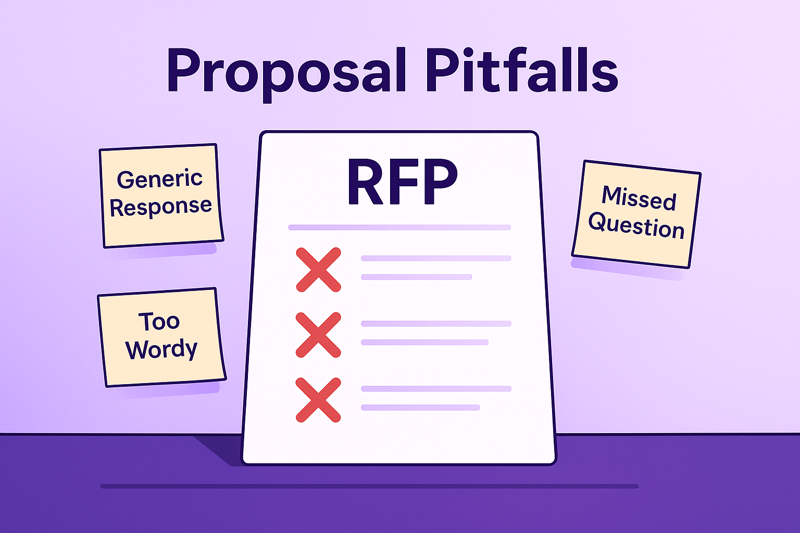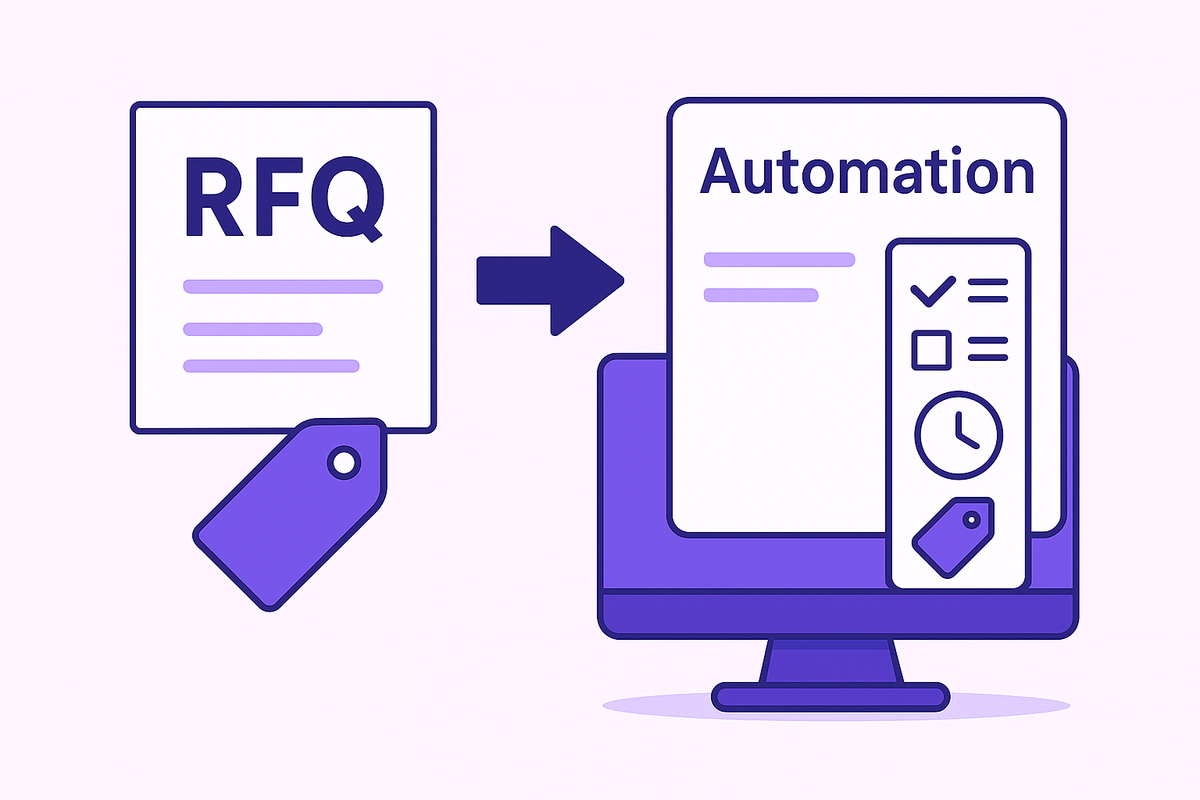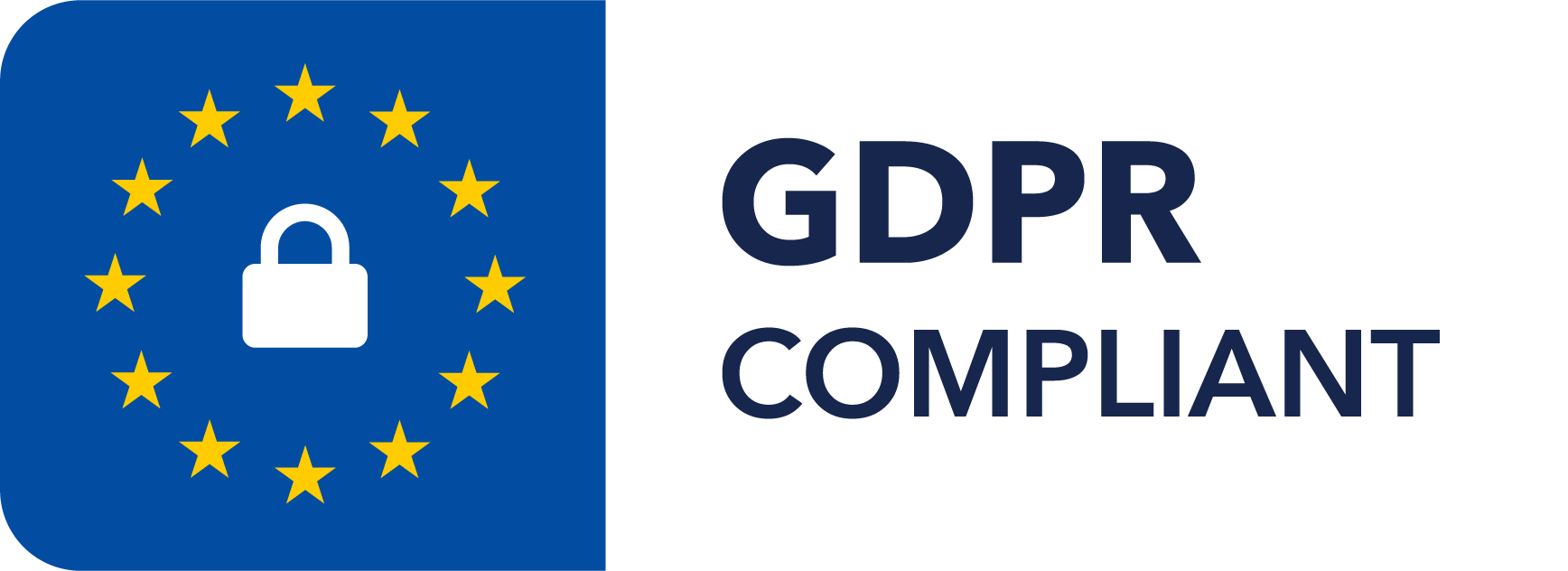Deal Desk Process Flow: A Guide for Sales Teams
August 11, 2025
By
Evie Secilmis

You hired your best salespeople to connect with customers and close deals, not to get lost in paperwork. But how much of their week is spent hunting for answers in old RFPs or chasing down internal approvals? This administrative drag drains their energy and pulls them away from selling. An AI-powered deal desk streamlines this entire workflow. It automates the tedious tasks and creates an efficient deal desk process flow. This isn't just about saving time; it's about empowering your team to focus on building relationships and winning bigger deals.
Key Takeaways
- Automate to Accelerate Your Sales Cycle: An AI deal desk takes over the manual, time-consuming work of building proposals and chasing down internal approvals. This directly shortens your sales cycle and allows your team to handle a higher volume of complex deals without burning out.
- Establish One Source of Truth: Connect your existing tools to a central AI platform that organizes, verifies, and maintains your company's information. This eliminates costly errors and ensures every document sent to a client is accurate, compliant, and on-brand.
- Make Smarter, Strategic Moves: Use the platform's analytics to understand what works. By analyzing past wins and losses, your team can make data-driven decisions on pricing and strategy, turning insights into a clear path to higher win rates.
So, What Is a Deal Desk?
If you’ve ever felt like you needed a mission control center for a high-stakes sales deal, you already understand the concept of a deal desk. Think of it as a dedicated team that helps manage and close your most complex and valuable sales opportunities. It’s a centralized hub that brings together experts from different departments—like sales, finance, and legal—to make sure every part of a complicated deal is handled correctly and efficiently. The main goal is to streamline the process, reduce friction, and help your sales team close bigger deals, faster. Instead of sales reps running from department to department for approvals, the deal desk acts as a single point of contact, creating a more structured and strategic approach to complex sales.
What Does a Deal Desk Actually Do?
At its core, a deal desk manages the entire lifecycle of a non-standard sales contract. Their main job is to make sure every deal aligns with company policies while moving through the pipeline as smoothly as possible. This team provides critical pricing guidance, reviews and approves special discounts, and manages the approval workflows for any custom terms or conditions. Essentially, they are the guardians of profitability and compliance. By standardizing the approach to complex negotiations, a deal desk helps protect your margins and ensures that the terms you agree to are not only good for the customer but also healthy for your business in the long run.
The Deal Desk Review Process
So, what does this process look like in action? While every company adds its own flavor, the core workflow for a deal desk follows a clear, logical path. This structure is designed to bring order to chaos, ensuring that even the most complicated deals are reviewed thoroughly and moved forward efficiently. It’s all about creating a repeatable system that supports your sales team and protects the business at the same time. Let’s walk through the typical five-step flow that takes a deal from a salesperson's request to a successful handoff.
The Step-by-Step Deal Desk Process Flow
1. A Salesperson Submits a Request
It all starts when a salesperson identifies an opportunity that falls outside the standard sales process. Instead of going rogue, they submit a formal request to the deal desk. This is usually done through a centralized system like a CRM or a dedicated deal desk platform. The request includes all the essential details: the customer's needs, the proposed solution, any requests for non-standard pricing or terms, and the potential value of the deal. This initial submission acts as the official starting gun, kicking off a structured review process designed to get the salesperson the support they need quickly.
2. The Deal Desk Reviews Pricing and Terms
Once the request is in, the deal desk team gets to work. Their first job is to act as a strategic filter, carefully reviewing the proposed pricing and terms. They check everything against the company’s established guidelines, profitability targets, and legal requirements. Is the discount being offered sustainable? Do the contract terms introduce any unnecessary risk? The team analyzes the deal from every angle to ensure it’s not just a win for the sales rep, but a healthy, profitable agreement for the entire company. This step is crucial for maintaining consistency and protecting your bottom line.
3. The Team Collaborates with Other Departments
Complex deals rarely exist in a silo. They often require input from legal, finance, product, and even operations teams. The deal desk acts as the central coordinator, bringing all the right stakeholders to the table at the right time. Instead of the salesperson having to chase down approvals from five different departments, the deal desk manages the entire cross-functional collaboration. This ensures that all perspectives are considered, potential roadblocks are identified early, and everyone is aligned on the final proposal before it goes to the customer. It’s a streamlined approach that saves everyone time and headaches.
4. The Deal Desk Manages the Approval Workflow
After the deal has been reviewed and all stakeholders have provided their input, the deal desk manages the formal approval process. They navigate the internal chain of command, routing the deal to the necessary decision-makers for their sign-off. A well-oiled deal desk uses a clear, established workflow to keep the process moving without delays. Modern deal desk software can automate these workflows, sending notifications and reminders to ensure approvals happen swiftly. This structured management prevents deals from getting stuck in limbo and provides sales reps with clear visibility into the status of their request.
5. The Deal is Handed Off for Delivery
Once the final approval is secured and the customer has signed on the dotted line, the deal desk’s work is almost done. The last step is to ensure a smooth and clean handoff to the teams responsible for implementation, onboarding, or service delivery. The deal desk packages all the relevant information—the final contract, agreed-upon terms, and any important context—and passes it to the execution teams. This ensures that what was promised during the sales process is what gets delivered, leading to a seamless customer experience from day one and setting the stage for a long-term partnership.
What Kinds of Deals Does a Deal Desk Handle?
A deal desk isn't meant for every single transaction that comes through your pipeline. It’s a specialized resource reserved for opportunities that are too complex, strategic, or unusual for the standard sales process. Think of it as the special forces unit you call in for high-stakes missions. These are the deals that carry significant revenue potential but also come with higher risk or complexity. Engaging the deal desk for these specific scenarios ensures they get the expert attention they need to be structured correctly and closed successfully, without slowing down your team's day-to-day sales motion.
Non-Standard and Complex Sales
The most common trigger for deal desk involvement is any sale that deviates from your standard playbook. This could involve requests for custom pricing, unique contract terms, or a bundled solution that includes products and services from different parts of your business. These deals require careful consideration because a small change in one area can have a big impact on another. The deal desk brings together the cross-functional expertise needed to evaluate these requests, model their financial impact, and craft a creative solution that meets the customer's needs while still aligning with your company's strategic goals.
Ramp Deals and Multi-Year Contracts
Long-term commitments and ramp deals, where pricing or services change over the course of a multi-year contract, are prime candidates for the deal desk. These agreements are inherently complex because they require you to forecast revenue and resource needs far into the future. The deal desk works closely with finance and legal teams to structure these contracts properly. They ensure the pricing model is sound, the terms are clear, and the agreement is built for a sustainable, profitable long-term relationship rather than just a short-term win.
Requests for Proposals (RFPs)
Requests for Proposals (RFPs), along with other formal documents like RFIs and Security Questionnaires, are a perfect fit for the deal desk. These documents are often lengthy, highly detailed, and require precise, verified information from across the entire organization. The deal desk can take the lead in coordinating the response, pulling in subject matter experts and ensuring the final submission is accurate, compliant, and compelling. An AI deal desk solution is particularly powerful here, as it can automate the process of finding answers and generating first drafts, dramatically reducing the time it takes to build a high-quality proposal.
When Should Sales Reps Use the Deal Desk?
Knowing when to bring in the deal desk is key to making the process work. Sales reps should think of the deal desk as their strategic partner for any opportunity that feels out of the ordinary. If a customer is asking for a steep discount that goes beyond your standard approval limits, it’s time to call the deal desk. If the deal requires custom legal language or involves a multi-year commitment with complex pricing, the deal desk should be your first stop. Essentially, any time a deal requires special approvals or a level of strategic input that goes beyond the sales team's typical scope, engaging the deal desk ensures you have the right expertise to structure a winning, profitable deal.
Who’s on the Deal Desk Team?
A successful deal desk is a cross-functional team effort. It’s not just a sales function; it’s a strategic blend of expertise from across the company. You’ll typically find people from sales and revenue operations working together to keep processes running smoothly. Finance and accounting experts are there to analyze the financial impact of deals and protect the company’s bottom line. The legal team steps in to review contracts and mitigate risks. For custom requests, product and engineering experts weigh in on feasibility. Finally, customer success teams help plan for a smooth post-sale handoff, ensuring you can deliver on your promises.
The Deal Desk Manager and Analyst Roles
Leading the charge is the Deal Desk Manager, who acts as the strategic quarterback for complex deals. They are responsible for designing the overall process, setting the rules of engagement, and ensuring the team has the resources it needs to succeed. The Deal Desk Analyst, on the other hand, is the tactical expert who works directly with sales reps on a day-to-day basis. They are the ones who review deal structures, analyze pricing, and guide reps through the approval process. In fast-growing companies, these roles are essential for creating a scalable sales process. They help cut down on the paperwork and internal back-and-forth, allowing smaller support teams, like legal, to keep pace with a rapidly expanding sales force.
Key Members: Sales, Legal, Finance, and RevOps
A deal desk isn't a silo; it's a hub of collaboration. As one resource puts it, it's a "special team made up of people from different departments" whose main job is to help close important deals more efficiently. Sales reps are the primary customers, bringing deals to the desk for support. The legal team reviews contracts for risk and compliance, ensuring every agreement is sound. Finance steps in to analyze profitability, approve non-standard payment terms, and protect the company's margins. Finally, Revenue Operations (RevOps) works alongside the deal desk to ensure the processes are efficient and the data collected from each deal helps inform broader revenue strategy. This cross-functional approach ensures every deal is viewed from all critical angles.
The Expanded Role of the Legal Team
One of the biggest benefits of a deal desk is how it transforms the legal team's function from a bottleneck into a strategic partner. Instead of being buried under a mountain of routine contract reviews, the legal department can focus on high-risk, high-value negotiations. A well-run deal desk empowers sales reps to handle more standard contracts on their own using pre-approved templates and clauses. This is where an AI-powered platform becomes a game-changer, serving as a single source of truth for approved language. By centralizing this information, you drastically reduce the time legal spends on repetitive tasks and free them up to provide high-impact guidance where it's needed most.
Deal Desk vs. Revenue Operations (RevOps)
It’s easy to confuse the functions of a deal desk and RevOps, but they serve distinct purposes. Think of it this way: the deal desk is focused on the micro level, while RevOps operates at the macro level. A deal desk is transactional, concentrating on the specifics of individual deals—like pricing, terms, and approvals—to get them across the finish line. RevOps, however, takes a holistic view of the entire revenue engine. As Salesforce explains, RevOps looks at the bigger picture, including sales forecasting, process optimization, and aligning all revenue-generating teams. The deal desk is a critical component of the sales process that RevOps aims to streamline, but they are two separate functions working toward the same goal: driving revenue.
Where Traditional Deal Desks Miss the Mark
While the idea is solid, traditional deal desks often become a bottleneck. Why? They typically rely on a patchwork of emails, spreadsheets, and manual check-ins. This manual approach is not only slow but also prone to human error, leading to frustrating delays for your sales team and your potential customers. When approvals get stuck in someone’s inbox or a pricing error slips through on a spreadsheet, the entire deal can be put at risk. This inefficiency means your team spends more time on administrative tasks and less time actually selling. It’s a common pain point that can limit your ability to scale and respond to opportunities quickly.
Common Challenges and Bottlenecks
The fundamental issue is that manual processes simply don't scale. As your team handles more complex deals, relying on scattered email threads and spreadsheets for approvals becomes unsustainable. Information gets buried, version control becomes a nightmare, and critical approvals get stuck waiting in someone’s inbox. This forces your sales reps into a frustrating cycle of chasing internal updates instead of focusing on customers. Without a central hub for information, you're left dealing with inconsistent pricing, outdated answers, and a greater risk of compliance errors. These bottlenecks don't just slow down the sales cycle; they directly threaten your ability to close deals.
When and Why a Deal Desk is Needed
So, when does it make sense to formalize this process? A deal desk becomes necessary when your sales process grows too complex for individual reps to manage alone. If your team is consistently selling high-value, non-standard deals that require custom pricing, special legal terms, or input from multiple departments, you've likely reached the tipping point. It’s the moment you realize that the administrative chaos is costing you more than just time—it’s affecting your win rates and team morale. A deal desk is your answer to creating a scalable, repeatable process for your most important revenue-generating activities, ensuring that every complex deal gets the strategic attention it deserves without slowing everything down.
The Evolution of the Deal Desk
Deal desks aren’t a brand-new idea, but their function has certainly evolved. Traditionally, they were seen as the "deal police," a bureaucratic hurdle for sales reps to clear. Today, the modern deal desk is a strategic partner. It’s a specialized, cross-functional team with members from sales, finance, legal, and operations, all working from the same playbook. This group acts as a central hub to manage and approve complex sales, especially those with unique terms or recurring revenue models. The goal is to provide a smooth, efficient path to closing a deal, ensuring everyone agrees on the terms and that the company is protected from unnecessary risk.
Modern Business Reasons for the Growth of Deal Desks
Deal desks used to be reserved for enterprise-level giants, but that’s no longer the case. More and more growing businesses are adopting them, and for good reason. Today’s sales landscape is more intricate than ever; customers expect personalized solutions and lightning-fast responses. At the same time, companies are placing a greater emphasis on profitability, not just revenue. A deal desk helps balance these demands by creating a structured framework for custom deals. This structure allows sales teams to move quickly and confidently, knowing their proposals are both competitive and profitable. The rise of powerful B2B sales tools has also made it easier for companies of all sizes to implement and manage an effective deal desk.
Which Companies Benefit Most from a Deal Desk?
While almost any B2B company can find value in a deal desk, they are especially critical for businesses with certain characteristics. If your company has long sales cycles, offers highly customized products or services, operates in a heavily regulated industry, or frequently handles large, strategic deals, a deal desk is less of a luxury and more of a necessity. These scenarios introduce a level of complexity that can quickly overwhelm a sales team, leading to errors, delays, and lost opportunities. A deal desk provides the specialized oversight needed to handle these high-stakes situations with precision and control.
SaaS and Technology
Software-as-a-Service (SaaS) and technology companies are prime candidates for a deal desk. Their sales often involve complex variables like tiered pricing, multi-year contracts, custom feature requests, and intricate service-level agreements (SLAs). A deal desk helps standardize the approach to these non-standard requests, ensuring that pricing is consistent and that the engineering team isn’t over-promised something it can’t deliver. By streamlining the quote-to-cash process, a deal desk allows tech companies to scale their sales efforts without sacrificing profitability or customer satisfaction.
Healthcare and Consulting
For healthcare and consulting firms, compliance isn't just a buzzword—it's a critical business requirement. These industries are governed by strict regulations and handle sensitive client data, making every contract a potential minefield of risk. A deal desk is essential for managing these complexities, ensuring that every proposal and contract adheres to legal and regulatory standards like HIPAA. It provides a centralized review process that protects both the firm and its clients, allowing consultants and healthcare providers to focus on delivering value instead of getting bogged down in contractual details.
Financial Services
The financial services industry operates on a foundation of trust, accuracy, and regulatory adherence. Companies in this sector often deal with intricate pricing structures, complex compliance issues, and significant financial risk with every deal. A deal desk serves as a crucial checkpoint, helping to streamline negotiations while ensuring every agreement meets strict industry standards. By providing a clear process for approvals and risk assessment, it helps financial services firms manage deals efficiently and protect their bottom line from costly errors or compliance violations.
What Makes a Deal Desk "AI-Powered"?
So, what happens when you give a traditional deal desk a major upgrade with artificial intelligence? You get an AI deal desk—a centralized, intelligent platform designed to manage your most complex and valuable sales opportunities. Think of it as the brain of your sales process. It doesn't just streamline the administrative side of things; it actively helps your team make smarter, faster decisions.
Instead of manually chasing down information, coordinating with different departments, and piecing together proposals, an AI deal desk automates the heavy lifting. It uses AI to instantly find the best answers for RFPs, security questionnaires, and SOWs, pulling from a single source of truth that it helps keep up-to-date. This means your sales team can stop playing project manager and focus on what they do best: selling. An AI-powered platform brings together all the necessary people and information, creating a seamless workflow that accelerates deals from start to finish. It’s about working smarter, not just harder, to close bigger deals with less friction.
How AI Transforms Your Deal Desk Process Flow
Adding AI to your deal desk process is a complete game-changer. It takes over the repetitive, time-consuming tasks that often cause bottlenecks, like searching for approved content or getting approvals from legal and finance. This immediately speeds up your sales cycle. With AI handling the administrative work, your team is free to concentrate on more strategic activities, like personalizing proposals and building stronger client relationships.
Beyond just speed, AI brings a new layer of intelligence to your process. It can analyze data from past deals to spot trends and predict customer behavior, helping you make more informed decisions. This proactive approach allows you to refine your strategy and improve your deal volume and win rates over time. It’s like having a strategic analyst on your team, constantly working to give you a competitive edge.
Under the Hood: Core AI Components
At its heart, an AI deal desk is a cross-functional hub that unites your team and your knowledge. It’s built on a few key components that work together to accelerate and close high-value deals. First, there's a centralized knowledge library that stores all your approved company information, from product specs to security protocols. The AI constantly organizes and even helps you maintain this content.
Next are the intelligent workflows that automate the entire response process. The system can instantly generate first drafts for complex documents like RFPs and DDQs, pulling the most relevant information from the library. It also streamlines the approval process by automatically routing questions to the right experts in finance, legal, or engineering. These core features ensure everyone is working together efficiently within one unified platform.
How It Integrates with Your Tech Stack
One of the biggest misconceptions about AI is that it requires you to replace all your existing tools. The reality is that the best AI deal desks are designed to work alongside your team and integrate smoothly with the systems you already use every day. A powerful AI platform connects to your CRM, cloud storage, and communication channels to create a single, cohesive ecosystem for your sales operations.
This integration is key because it allows the AI to function as a true partner. For example, Iris can proactively scan your connected systems to identify and flag outdated information, ensuring your proposals are always accurate. By working with your current tech stack, an AI deal desk enhances your existing processes without causing major disruptions. It’s about augmenting your team’s capabilities, not replacing the tools they rely on.
What to Look For in AI Deal Desk Software
When you start looking at AI deal desk solutions, you’ll quickly find they aren’t all created equal. To get the speed, accuracy, and strategic advantage your sales team needs, you have to look for a specific set of features. These aren’t just nice-to-haves; they are the core functions that separate a truly transformative tool from a glorified document repository. Think of this as your essential checklist for finding a platform that will actually make a difference in your deal volume and win rates.
Process Documents Smarter, Not Harder
Your team shouldn't spend hours manually sifting through dense RFPs, security questionnaires, or contracts. A top-tier AI deal desk uses intelligent document processing to do the heavy lifting. The AI can instantly read contracts and other complex documents, pulling out key details, flagging potential risks, and summarizing critical information. This means your team can get up to speed on a new opportunity in minutes, not days. It’s the key to responding faster and more accurately, giving you a head start on the competition. This is a core component of any effective AI deal desk solution, as it turns massive documents into actionable insights.
Get Instant, Accurate Pricing and Quotes
Pricing and quoting can be a major bottleneck in the sales cycle, often involving messy spreadsheets, back-and-forth emails, and long waits for approvals. An AI deal desk breaks through this logjam. The right platform can automate quoting and pricing based on predefined rules, customer history, and product configurations. It can even route quotes for approval automatically, keeping the process moving without constant manual follow-up. This not only accelerates the sales cycle but also ensures your pricing is consistent and error-free, protecting your margins and building trust with your customers.
Automate Your Deal Desk Workflows
Effective deal management is all about smooth, predictable processes. Smart workflow automation is the engine that makes this happen. It goes beyond simple task reminders by reducing manual work and automatically triggering next steps, like approvals or follow-ups. When a deal reaches a certain stage or a specific document is completed, the system initiates the next action. This ensures that deals don't get stuck waiting for someone to act. By creating clear, automated pathways, workflow automation frees your team to focus on high-value activities like strategy and customer conversations instead of administrative tasks.
See What's Coming with Predictive Analytics
What if you knew which deals were most likely to close? Predictive sales analytics gives your team that strategic edge. By analyzing historical data and current deal characteristics, the AI can forecast outcomes and highlight the opportunities that deserve the most attention. This allows your team to prioritize their efforts effectively, focusing their energy on deals with the highest probability of success. Instead of spreading themselves thin, they can dedicate resources where they’ll have the greatest impact. Using predictive analytics helps your team work smarter, leading to higher conversion rates and a more predictable pipeline.
Keep All Your Contracts in One Place
Scattered documents and version control issues can derail even the most promising deals. A centralized hub for all deal-related information is essential. This feature ensures everyone—from sales and legal to finance—is working from the same playbook. A modern deal desk doesn't just store documents; it helps your team plan how to negotiate by providing easy access to approved terms, pricing structures, and past agreements. This single source of truth streamlines collaboration, reduces compliance risks, and empowers your team to negotiate with confidence, knowing they have the most current and accurate information at their fingertips.
The Payoff: Why Your Sales Team Needs an AI Deal Desk
Adopting a new system can feel like a huge lift, but the advantages of an AI deal desk are too significant to pass up. Think of it less as just another piece of software and more as a strategic partner for your sales team. It’s about fundamentally changing how you approach complex deals, moving from a reactive, last-minute scramble to a proactive, streamlined process. The real payoff comes from empowering your team to work faster, smarter, and more collaboratively than ever before. When you remove the friction from creating proposals and managing approvals, you’re not just saving time; you’re creating a more predictable and powerful sales engine.
An AI deal desk becomes the central nervous system for your sales operations, connecting all the moving parts that are essential for closing big deals. It automates the tedious work that drains your team's energy, ensures every proposal is accurate and compliant, and frees up your top performers to focus on what they do best: building relationships and selling. By bringing together people, processes, and data, it creates a cohesive environment where deals move forward with momentum. The benefits aren’t just about efficiency; they translate directly into higher win rates, shorter sales cycles, and a healthier bottom line. It’s the support system your team needs to confidently tackle any opportunity, no matter how complex.
Make the Sales Process up to 40% Faster
One of the biggest drags on any sales team is the time spent waiting—waiting for information, waiting for approvals, waiting for a final proposal to come together. An AI deal desk tackles this head-on by automating the administrative work that creates these delays. In fact, the right approach can make the sales process up to 40% faster. Instead of your reps manually building proposals or chasing down approvals from legal and finance, the AI platform handles it. It uses automated tools to bring the right people together at the right time, eliminating the bottlenecks that stall momentum. This directly shortens your sales cycle and frees your team to focus on what they were hired to do: sell.
Help Your Team Close Deals Faster
In sales, time is always working against you. The longer a deal sits in the pipeline, the more likely it is to fall apart. An AI deal desk is specifically designed to accelerate the entire sales cycle, especially for those complex, non-standard deals that used to take weeks. Instead of your team manually compiling information for an RFP or building a Statement of Work from scratch, the AI can generate a polished first draft in minutes. It instantly finds the right answers, pulls approved content, and handles the formatting, cutting out the endless searching and internal back-and-forth. This level of automation streamlines everything from the initial quote to the final signature, helping your team close deals faster and build momentum toward the next opportunity.
Stay Accurate and Compliant, Automatically
A simple mistake in a proposal or contract can be incredibly costly, leading to painful renegotiations, compliance issues, or even a lost deal. An AI deal desk acts as your built-in quality control, ensuring every document that goes out the door is accurate, on-brand, and compliant with your company’s rules. It connects sales objectives with financial and legal guidelines by drawing from a centralized, pre-approved content library. Our platform, Iris, even proactively identifies and flags outdated information across your systems, so you can be confident you’re always using the most current data. This eliminates embarrassing errors and reduces the risk associated with non-standard deal structures, giving both your team and your clients total peace of mind.
Give Your Team More Time to Sell
Your sales reps are your most valuable asset, and their time is best spent building relationships and closing deals—not getting buried in administrative tasks. An AI deal desk takes over the repetitive, time-consuming work that bogs them down. Think of all the hours spent searching for answers in old documents, formatting proposals, and chasing down approvals from other departments. The AI handles that, freeing up your team to focus on high-value activities like discovery calls, product demos, and strategic negotiation. By automating the busywork, you empower your reps to spend more time engaging with customers and thoughtfully managing their pipeline, which improves productivity and contributes to higher job satisfaction.
Get Sales, Legal, and Finance on the Same Page
Complex deals are a team sport. They require input and approval from legal, finance, product, and operations, which can quickly turn into a chaotic mess of emails and conflicting feedback. An AI deal desk brings all these experts together in one centralized platform, creating a single source of truth where everyone can collaborate efficiently. Instead of working in silos, different departments can review, comment on, and approve deal components within a structured and transparent workflow. This ensures everyone is aligned and helps different departments work together better, breaking down communication barriers and making the entire approval process smooth, predictable, and painless for everyone involved.
Make Confident Decisions with Better Data
Great sales strategy is built on more than just a gut feeling. An AI deal desk transforms your sales process into a powerful source of data that you can actually use. By analyzing past deals—both your wins and your losses—the AI can uncover valuable insights into pricing, deal structures, and customer behavior that would be nearly impossible to spot otherwise. This allows your team to make smarter, data-backed decisions instead of relying on guesswork. You can identify which terms are most likely to be accepted or what pricing models have the highest success rate. Using these predictive sales analytics helps you refine your strategy over time, optimize your approach for future deals, and ultimately improve your overall win rate.
AI Deal Desks: Common Myths vs. Reality
When we talk about AI, it's easy for our minds to jump to sci-fi movies or get tangled in technical jargon. But when it comes to using AI in your sales process, the reality is much more practical—and much less intimidating. Let's clear the air and tackle some of the most common myths about AI deal desks. Understanding what these tools actually do, and what they don't, is the first step toward seeing how they can genuinely support your team.
From fears about job replacement to concerns about complex setups, we'll separate the fiction from the facts. The truth is that AI is a powerful ally for sales teams, designed to make your work easier, faster, and more effective. It’s not about replacing your expertise; it’s about amplifying it. By automating the tedious parts of the job, an AI deal desk gives your team the space to focus on strategic thinking and building strong customer relationships.
Will AI Replace Your Sales Team? (Spoiler: No)
Let’s get this one out of the way immediately: AI is not here to take your job. Think of an AI deal desk as the ultimate sales assistant. Its purpose is to handle the time-consuming, repetitive tasks that bog your team down—like searching for that one perfect answer from a past RFP or pulling together standard company information. This frees up your sales professionals to focus on the high-value work that only humans can do: building client relationships, crafting winning strategies, and navigating complex negotiations. The reality is that AI works best alongside people, not instead of them. It’s a partnership where technology handles the grunt work, allowing your team’s talent to shine.
Why Your Data Quality Matters (A Lot)
Another common holdup is the belief that you need a perfectly curated, massive database before you can even think about AI. The reality is much more forgiving. A great AI deal desk is designed to work with the information you already have scattered across your systems—previous proposals, security questionnaires, and SOWs. In fact, the AI helps create a reliable source of truth by ingesting, organizing, and verifying your existing content. You don't need a huge budget or a team of data scientists to get started. The right platform can work effectively with your existing data and systems, building a smarter knowledge base with every document it processes.
Is AI Deal Desk Software Hard to Set Up?
While an AI deal desk isn't a simple 'plug-and-play' solution, it doesn't require a massive, disruptive overhaul of your operations either. The key is that a successful implementation isn't about finding a one-size-fits-all tool; it's about adopting a platform that understands your specific sales processes. The setup focuses on integrating with the tools you already use, like your CRM and cloud storage, and teaching the AI how your team works. With a solution like the Iris platform, the process is guided and tailored to your needs. It’s less about a difficult technical project and more about a strategic partnership to streamline your existing workflows for better results.
What About Data Security and Privacy?
Handing your company’s sensitive information over to an AI can feel risky, but security is a top priority for any reputable deal desk platform. These systems are not open-ended chatbots sending your data to the public domain. Instead, they operate within a secure, closed-loop environment. Think of it as having built-in guardrails for your information. An AI deal desk like Iris is designed with enterprise-grade security to protect your intellectual property. All your data, from client details to pricing strategies, is processed within the platform, ensuring it remains confidential and compliant with your company's security policies. Your information is used to help you, and only you.
Is Your AI Deal Desk Working? Here's How to Tell
So, you’ve brought an AI deal desk into your workflow. That’s a fantastic first step. But how do you know it’s actually making a difference? The proof is in the data. Measuring the impact isn't just about justifying the investment; it's about understanding what's working, where you can improve, and how this technology is truly transforming your sales process. It’s easy to feel like things are moving faster, but having concrete numbers and clear feedback helps you pinpoint exactly where the AI is delivering the most value.
Think of it like a fitness tracker for your sales cycle. You wouldn't just hope you're getting healthier; you'd track your steps, heart rate, and sleep patterns. Similarly, we need to look at specific metrics to see the health of our sales operations. We'll cover the hard numbers you should be watching, how to assess the quality of your deals, why your team's happiness is a critical indicator of success, and how it all rolls up into a clear return on investment. This isn't about getting lost in spreadsheets; it's about gaining clarity and confidence in your strategy.
The Key Performance Metrics to Track
To get a clear picture of your AI deal desk's performance, you need to look at the right numbers. Start by tracking your average deal cycle time. How many days does it take to get from the initial proposal to a signed contract? An effective AI deal desk should shorten this timeline significantly. Also, keep an eye on your approval turnaround time—how quickly are deals moving through internal reviews? Faster approvals mean less friction and quicker closes. Other important deal desk metrics include compliance rates and customer satisfaction scores. Tracking these figures before and after implementation will give you a black-and-white view of the progress you're making.
Deal Margin and Profitability
Beyond speed, you need to know if your deals are actually profitable. An AI deal desk helps protect your bottom line by standardizing your pricing and discount structures. It provides sales reps with clear guardrails, preventing them from offering unapproved discounts just to close a deal under pressure. This is especially critical for fast-growing companies where sales teams are expanding faster than the finance or legal departments that support them. By automating the approval process for non-standard terms, the system ensures every deal aligns with your company's financial goals. This helps you grow your business faster without sacrificing profitability, ensuring that a higher deal volume also means a healthier margin.
Contract Error Rate
A single typo or an outdated clause in a contract can create massive headaches, leading to compliance issues, difficult renegotiations, or even a lost deal. Your contract error rate is a direct measure of your process's reliability. An AI deal desk acts as a crucial layer of quality control, drastically reducing the risk of human error. By pulling information from a single, verified source of truth, it ensures every proposal, SOW, or RFP response is accurate and on-brand. Platforms like Iris take this a step further by proactively scanning your connected systems to flag outdated information before it ever makes it into a document, giving you confidence that every contract you send is perfect.
Win Rates and Renewal Rates
Ultimately, the goal is to win more business. Your win rate is the most direct indicator of your sales effectiveness. An AI deal desk provides the data you need to understand what separates a win from a loss. By analyzing past deals, it helps you identify successful patterns in pricing, terms, and strategy. This allows your team to stop guessing and start making data-driven decisions that improve their approach over time. This positive effect extends to renewal rates as well. A smooth, professional, and error-free sales process builds trust from day one, setting the foundation for a strong, long-term customer relationship and making it easier to look at what's working for future renewals.
Go Beyond Speed: How to Evaluate Deal Quality
Closing deals faster is great, but are they the right deals? This is where evaluating deal quality comes in. It’s a way to measure how valuable and profitable a deal is likely to be before you invest too much time in it. You can create a Deal Quality Score by looking at factors like deal size, profit margin, and strategic alignment. An AI deal desk helps standardize this process, ensuring every opportunity is assessed against the same criteria. By tracking these scores, you can get a much clearer sense of your pipeline's health and make smarter decisions about which deals to prioritize, leading to more predictable revenue and better long-term outcomes.
Measure Team Adoption and Happiness
Never underestimate the power of a happy sales team. If your reps find the new system clunky or unhelpful, they won't use it, and you won't see results. That's why sales rep satisfaction is a crucial metric. Are they spending less time on tedious administrative tasks? Can they find the information they need without jumping through hoops? A successful AI deal desk should feel like a supportive partner, not another obstacle. You can measure this through simple pulse surveys or informal check-ins. When your team feels empowered and efficient, their productivity and morale climb, which directly translates to better sales performance and lower turnover.
How to Calculate Your Real ROI
Ultimately, the goal is to see a tangible return on your investment. The ROI of an AI deal desk comes from multiple sources. First, there's the efficiency gain: when your sales team spends less time on paperwork, they have more time to focus on selling. This leads to faster sales cycles and the ability to handle a higher volume of deals. Second, improved accuracy and compliance reduce costly errors and risks. An AI-powered platform like Iris streamlines the entire process, from proposal generation to final approval. This combination of speed, accuracy, and strategic focus is what drives real sales growth and delivers a powerful, measurable ROI.
Your Game Plan for a Successful AI Deal Desk Launch
Bringing an AI deal desk into your workflow is a powerful move, but it’s not just about flipping a switch. Like any significant upgrade, a thoughtful rollout makes all the difference. Setting it up for success means thinking about the technology, the people, and the process. By planning ahead, you can ensure a smooth transition and start seeing a return on your investment almost immediately. The goal is to create a system that your team loves to use because it genuinely makes their jobs easier and more effective. Let's walk through the key steps to get you there.
Best Practices for Managing a Deal Desk
Once your AI deal desk is up and running, the focus shifts to managing it effectively. A powerful tool is only as good as the processes that support it. To ensure your deal desk becomes a strategic asset rather than just another software subscription, you need to establish clear guidelines and make it incredibly easy for your sales team to get the help they need. These best practices are about creating a system that is not only efficient but also user-friendly, encouraging adoption and maximizing its impact on your sales cycle. By building a solid operational foundation, you ensure your deal desk consistently delivers value and helps your team close complex deals with confidence.
Create a Playbook with Clear SLAs
A successful deal desk needs a rulebook. Your playbook is the single source of truth that outlines every step of the deal management process, from submission to final approval. It should clearly define the roles and responsibilities for everyone involved—sales, legal, finance, and operations—so there’s no confusion about who does what. More importantly, it must establish firm Service Level Agreements (SLAs) for each stage. This sets clear expectations for turnaround times, ensuring that requests don't get lost in someone's inbox. An AI platform helps enforce your playbook by automating handoffs and tracking progress against your SLAs, making accountability a built-in feature of your workflow.
Offer Multiple Support Channels
Your sales team is busy, and when they need help with a deal, they need it to be fast and frictionless. Relying on a single email address for deal desk requests is a recipe for bottlenecks. Instead, make it easy for reps to get support by offering multiple channels that fit into their existing workflow. This could mean integrating your deal desk with communication tools like Slack or Microsoft Teams, or creating a simple request portal directly within your CRM. The goal is to provide support where your team already works. A centralized platform like Iris acts as the core hub, but by connecting it to other channels, you ensure that getting help is always just a click away.
Map Out Your System Integrations First
Your AI deal desk shouldn't live on an island. To get the most value, it needs to communicate with the other tools your team already uses every day. Before you start, map out which systems you want to connect, like your CRM, content libraries, and any pricing software. Modern AI tools can automate quoting and approvals by pulling information from these connected systems, creating a seamless flow of data. This reduces manual entry and ensures everyone is working with the most current information. A well-integrated system becomes the central hub for all deal-related activity, which is a core function of the Iris platform.
Help Your Team Embrace the New Process
Change can be tough, but clear communication makes it much easier. Start by explaining the "why" behind the new AI deal desk—how it will reduce tedious work, speed up approvals, and help everyone close more deals. It's crucial to understand your sales process and define exactly when a deal needs to go through the desk and who the key decision-makers are. Frame this as a team effort, not a top-down mandate. Gather feedback, address concerns openly, and highlight early wins to build momentum. When your team sees the tool as a partner in their success, adoption will follow naturally.
Create a Training Plan That Actually Works
Effective training goes beyond just showing people which buttons to click. Your team needs to understand how the AI deal desk fits into the bigger picture of your sales strategy. Make sure everyone involved knows your products inside and out and how they solve customer problems. This context is what allows them to use the AI tool to build compelling, accurate proposals. Consider hands-on workshops, create a go-to resource guide, and establish a few internal experts who can help their peers. The better your team understands the tool and its purpose, the more creative and effective they’ll be when using it.
Set Clear Rules for Data Management
An AI tool is only as smart as the data it has access to. Before you go live, you need a plan for managing your information. This means cleaning up your existing content library and establishing a single source of truth for things like product descriptions, case studies, and security information. With a solid data foundation, the AI can instantly read contracts and summarize key details, pulling the right information for every RFP or security questionnaire. Proactively identifying and updating outdated information across your systems is a key benefit that ensures your proposals are always accurate and compelling.
Always Be Refining Your Process
Launching your AI deal desk is the beginning, not the end. The best teams treat their process as a living thing that can always be improved. After a deal closes, take a moment to look back at what went well and what could have been smoother. Use the analytics from your deal desk to spot bottlenecks or identify successful strategies you can replicate. Schedule regular check-ins with the sales, legal, and finance teams to gather feedback. This continuous loop of analysis and refinement helps you improve how you handle future deals and maximize the impact on your win rates.
What's Next for AI in the World of Sales?
The world of sales is constantly changing, and AI is at the forefront of that evolution. AI deal desks aren't just a temporary trend; they represent a fundamental shift in how sales teams operate and succeed. As the technology gets smarter, its role will only expand, moving from a helpful tool to an essential strategic partner. Looking ahead, we can see a few key areas where AI will continue to make its mark, shaping the future of how deals get done.
Emerging AI Technologies to Watch
Get ready for AI to take on even more complex tasks. We're moving beyond simple automation and into a world where AI agents can handle quoting, pricing, and even internal approvals with minimal human input. Imagine a system that not only drafts a proposal but also recommends the optimal pricing based on historical data and current market conditions. The goal is to create a centralized hub where every part of a deal can be proposed, analyzed, and managed. This isn't science fiction; modern AI deal desk platforms are already making this a reality, turning what used to be a bottleneck into a streamlined, efficient process.
How AI Will Shape Future Sales Trends
The most exciting developments in AI for sales are its predictive capabilities. By analyzing every deal your company has ever won or lost, AI can start to identify patterns and forecast future market trends and customer behaviors. This means your team can move from being reactive to proactive, anticipating customer needs before they even express them. AI will also become more integrated into the sales process to help you get the most value from every sale. This data-driven approach allows you to make smarter decisions, focus your efforts on the most promising leads, and tailor your strategy to what the market is telling you.
The Long-Term Impact on Sales Roles
Ultimately, AI is changing the very nature of the deal desk. It’s shifting from a purely administrative function focused on contracts to a strategic command center that fosters collaboration across your entire organization. When your legal, finance, and sales teams all have access to the same AI-powered insights, they can work together to make smarter, customer-focused decisions. AI can also dramatically speed up internal approvals and even improve your team’s negotiation skills by analyzing past deal structures. The long-term benefits of this approach are clear: a more agile, intelligent, and successful sales operation.
Related Articles
- Custom AI Isn’t Required for Smarter Deal Desks
- The Rise of the Full-Stack AE in Modern Sales
- AI Solutions Engineers: Tech Meets Sales
- Why AI SEs Are Key to Modern Sales Teams
- Best AI Proposal Assistant Software: A Complete Guide
Frequently Asked Questions
How is an AI deal desk different from our CRM? Think of it this way: your CRM is your address book and calendar for managing customer relationships and tracking where a deal is in your pipeline. An AI deal desk is your specialized command center for actually building and closing the most complex parts of that deal. It focuses on creating the documents—like RFPs, SOWs, and security questionnaires—by automating content generation and managing the intricate approval workflows with legal and finance. The two systems work together, but the AI deal desk handles the heavy lifting that your CRM simply isn't designed for.
Will my team lose control over the final proposal? Not at all. The goal of an AI deal desk is to empower your team, not replace their expertise. The AI acts as a brilliant assistant, generating a strong, accurate first draft in minutes by pulling from your company's approved information. This frees your sales reps from the tedious work of searching and compiling. From there, your team takes full control to refine the messaging, add strategic insights, and personalize the proposal to perfectly match the client's needs. The final product is always guided by human expertise.
Is this kind of tool only for large enterprise companies? This is a common question, but the value of an AI deal desk is tied to the complexity of your deals, not the size of your company. If your team, no matter how small, spends significant time responding to detailed RFPs or navigating multi-step security questionnaires, you're facing the same bottlenecks as larger organizations. An AI deal desk levels the playing field, allowing smaller teams to respond with the speed and accuracy of a much larger competitor, freeing up everyone to focus on winning more business.
We already have a deal desk. Why do we need to add AI? Having a traditional deal desk is a great step toward standardizing your process. The challenge is that it often still relies on manual handoffs, spreadsheets, and email chains, which can become a major bottleneck. Adding AI transforms your deal desk from a manual checkpoint into a high-speed strategic hub. It automates the content discovery, generates drafts instantly, and streamlines approvals, all while providing data insights to help you make smarter decisions. It takes the solid foundation you've built and makes it faster and more intelligent.
What's the most important first step to get started? The best way to begin is to take an honest look at your current process for handling your most complex deals. Sit down with your team and map out the entire journey of a recent RFP or SOW. Pinpoint exactly where things slow down—is it finding the right information, waiting for legal approval, or formatting the final document? Once you identify those specific pain points, you'll have a clear understanding of how an AI deal desk can solve your team's most pressing challenges.
Share this post
Link copied!




















